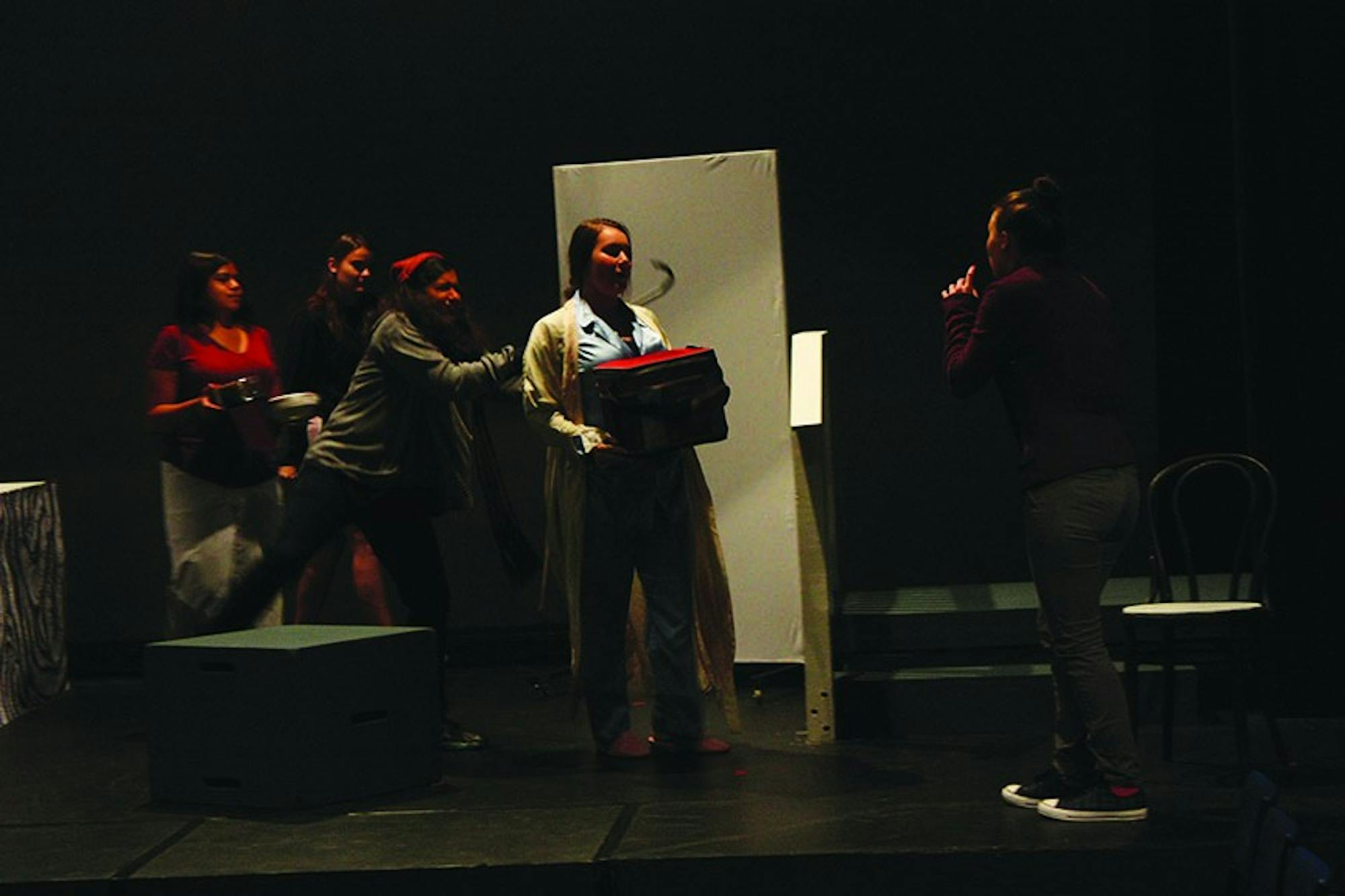What happens when two tapeworms find themselves in the midst of a black market organ trade crisis? A little girl’s grandfather is keeping a terrifying secret from his own daughter — what is it, and why is he so desperately trying to keep it hidden? What will be exposed of a family when its members gather to read the will of the family’s patriarch?
These questions, and more, will be answered for audience members this weekend at the Frost and Dodd Student Play Festival. The three plays featured in the festival are winners of the Eleanor Frost Playwriting Contest and the Ruth and Loring Dodd Playwriting Contest.
The winning Dodd Contest play, “Good Clean Holesome” by Elise Wein ’17, will be fully produced, while the winners of the Frost Contest will be performed as staged readings. These include “Bed Time,” written by Max Gibson ’16, and “The Will,” written by Haley Gordon ’18.
A staged reading includes actors with scripts in hand, with a few select elements of a fully staged production such as light and suggestions towards costuming. These readings provide audience members with a unique insight into “a developmental stage that many new plays go through,” said Marina McClure ’04, director of the Frost Contest winners.
While all entries were submitted to the same competition, the plays diverge significantly in theme and style.
“Good Clean Holesome” was written with “an interest in parasites as a framing device” and aimed to “illuminate the networks of interdependence that govern the characters’ lives,” Wein said. Both “The Will” and “Bed Time” explore the dynamics of family members when relationships are wrung through a crisis.
“Both [Dodd] plays are dealing with some rather heavy subject material, which is always a challenge,” McClure said. “There’s a great emotional depth that’s required for both of the plays, so it’s definitely stretching the student actors in really strong, meaningful ways.”
Beyond the student actors’ challenges regarding the material, other members of the production team saw opportunities to get creative when solving problems. Costume designer Celeste Jennings ’18 was tasked with creating a quirky and abstract tapeworm costume.
“I really enjoy working on [costumes] for something brand new, in part to create a backstory for the characters,” Jennings said.
Beyond the costume itself, the “feel of the environment” and “creation of the world of the characters” is important to establish, theater professor Jamie Horton said.
Horton, director of “Good Clean Holesome,” is also the professor for the course “New Plays in Development,” of which the Frost and Dodd Student Play Festival is a component. The class devotes three weeks to working on the festival plays.
“The [theater] department believes in fostering the development of new playwrights,” Horton said. “To see the playwrights develop is a real joy for us.”
The class’ involvement in the festival allows students enrolled to “have an immersive experience in what it means to create theater,” Horton said.
“Bed Time” was born out of a desire to create something with emotion, something that resonated with people, Gibson said.
“A lot of plays don’t elicit that feeling of anxiety for the audience and I wanted to recreate that,” Gibson said.
From Gibson’s perspective, the opportunity to witness his own play being produced is a chance to see “the story you’ve been writing come to life through other people.”
Live edits are also an exciting component for new plays. The playwrights Gordon, Gibson and Wein have been dropping in on rehearsals throughout the week. The revision process is a collaborative effort of the entire team, Horton said.
“The actors have suggestions, the dramaturg will have suggestions and the playwright will have suggestions,” Horton said. “We put it all out on the table and decide as a creative team which ones we want to act upon and which ones we want to cast aside.”
Even those who aren’t present at rehearsals — the audience — are part of the production team.
“Due to [theater’s] nature as a live performance art, actors and audience are partners in a way,” Horton said.
To Horton, rehearsing a play to empty chairs lacks a tangible and critical link between the performers and audience members. At times, after a show for a full auditorium, changes can still be made before the next performance based on this relationship.
Regarding the staged readings, Haley Reicher ’18, actress in both Dodd plays, also hopes the audience pushes further and takes time to “imagine how the shows can be different when fully produced.”
“I hope the audience will connect with this material in a concrete way, and to have fun, to laugh,” Horton said.




